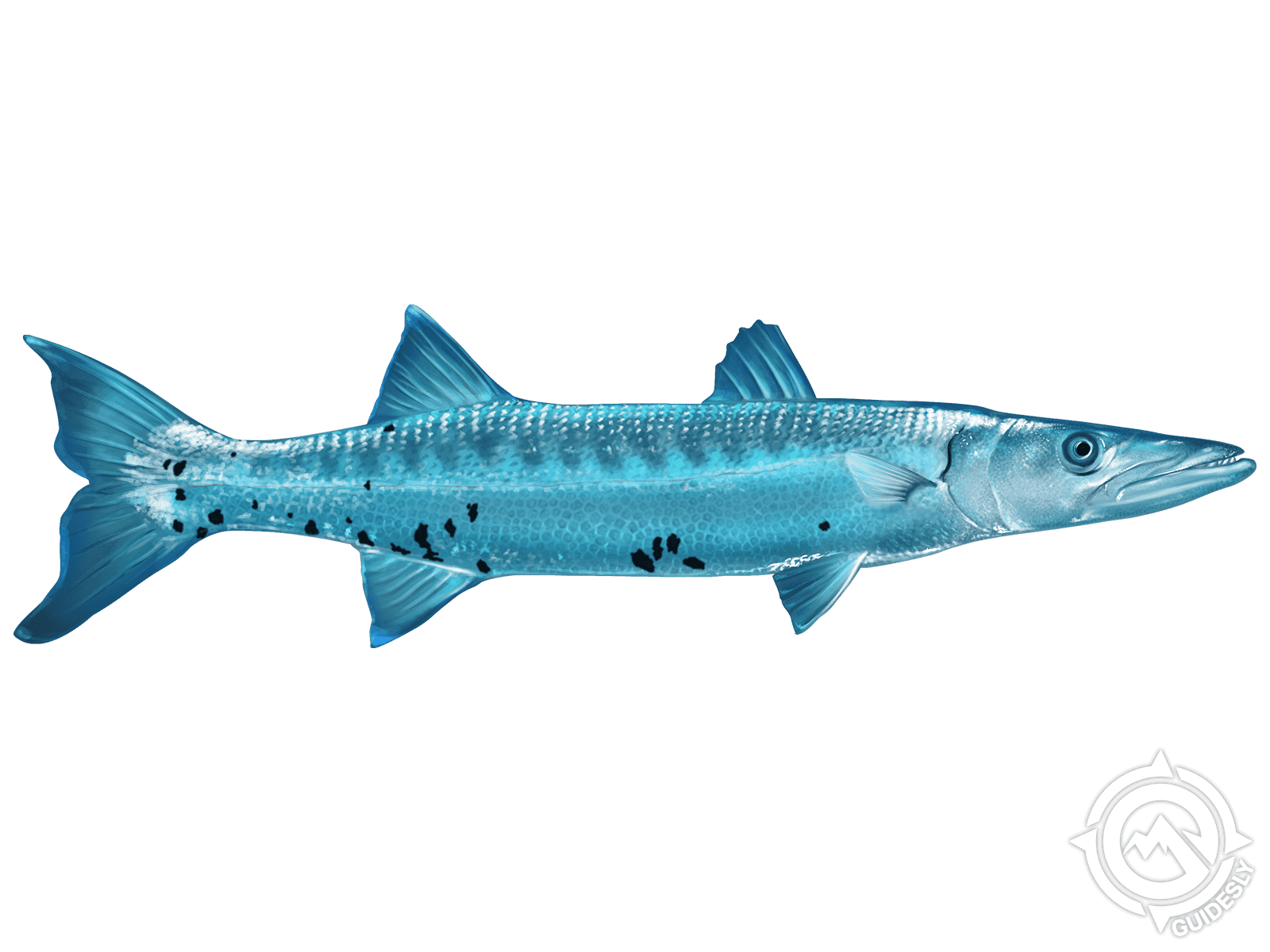Barracuda

Species Details
Sphyraena Barracuda
Sphyraena
Scombriformes
Nearshore, Offshore, Reef, Wreck
5 - 15 lbs.
24" - 39"
What is the Barracuda Fish?
The barracuda fish is a large, carnivorous saltwater fish with over 25 species. It can grow up to 6 feet and live up to 14 years. Its torpedo-shaped body makes it one of the fastest sea creatures, swimming up to 35 mph. Since barracuda hunt by sight and are attracted to shiny items, do not wear jewelry in the water.
Barracuda Fish Species (Sphyraena barracuda)
Barracuda is a large carnivorous saltwater fish. They have an extended, slender body that is thicker in the middle and pointed at the ends. Their head is fairly flat at the top and pointed in front, and their lower jaw projects in a sinister way. Their dorsal fins are widely separated, and the pectoral fins are low on their body. The Barracuda name does not apply to a specific fish, but to an entire family. The Sphyraenidae is a species of fish collectively known as Barracuda.
Barracuda Size
There are more than 25 species of barracuda worldwide, and they can be as long as 6 feet. For example, the Northern Barracuda (Sphyraena Borealis), can grow up to about 18 inches in length. Generally, the female grows to be bigger than the male. The fish maximum age is unknown, but the typical lifespan often exceeds 14 years. The male generally reaches sexual maturity at two years while the female at four years.
Interesting Barracuda Facts
- Barracudas hunt more by sight rather than smell; they are attracted to shiny items, like the silvery fish they feed on. Humans who enter the water with shiny items like jewelry and watches may cause a prying barracuda to probe and mistake these things for a food source. So divers entering the water where the barracuda are present should remove any glittering objects as a safety measure.
- Barracuda's body is torpedo-shaped and is made to cut water. These slim, long, and muscular fish are among the fastest creature in the sea. They are capable of swimming up to 35 mph. Barracuda swims almost as fast as the mako shark, which is very fast. They can't maintain the highest speed for long-distance, and most of their swimming time is slow enough to conduct food surveys, they only speed up when prey is within reach.
- They have large mouths with long jaws. They also have a lot of teeth. In fact, Barracuda has two rows of teeth: the rows of long teeth and daggers to strongly capture their prey, and the utmost rows of small but sharp teeth to tear meat. Some barracuda teeth point backward, as an additional aid to secure the Squirming fish.
Barracuda Habitat
Most barracudas live in near-shore habitats, such as mangroves, seagrass beds, and coral reefs. They are mainly saltwater fish, although some species can at times tolerate brackish water. Barracuda lives in the Pacific, Atlantic, and the Indian Ocean, also they are commonly found in the Caribbean and the Red Sea.
Barracuda Distribution
Sphyraena is common in the western Atlantic Ocean from Massachusetts in the USA to Brazil. They are also found in the Caribbean Sea and the Gulf of Mexico, including the Pacific Indian Ocean, the Eastern Atlantic Ocean, and the Red Sea.
Barracuda Fishing
They are among the most exciting and aggressive fish to catch with light tackle spinning rods. They can be found in shallow water bodies stalking small baitfish. We recommend using light tackle spinning gear with a 10lb test line and artificial lures. There is a lot of casting in this kind of angling. On a normal day, you can catch dozens of barracudas using this technique.







